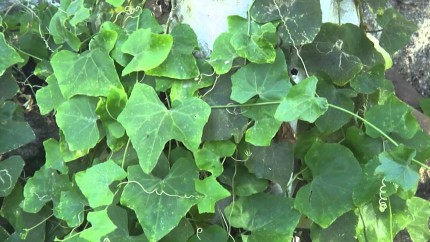Ivy Gourd
 Friday 03 July 2015
Friday 03 July 2015
Other Local Name : baby watermelon, little gourd,, tindora,
Botanical Name : Coccinea cordifolia / Coccinia cordifolia (L.) Cogn
Family : Cucurbitaceae
Main Use : Medicine
Other Uses : Vegetable
Know More
In traditional medicine, fruits of Ivy Gourd (তেলাকুচা) have been used to treat leprosy, fever, asthma, bronchitis, and jaundice. The fruit possesses mast cell-stabilizing, antianaphylactic, and antihistaminic potential.[5] In Bangladesh, the roots are used to treat osteoarthritis and joint pain. A paste made of leaves is applied to the skin to treat scabies. (see 'Ethnomedicinal survey of medicinal plants used by folk medical practitioners in four different villages of Gazipur District, Bangladesh;.
Ivy gourd extracts and other forms of the plant can be purchased online and in health food stores. These products are claimed to help regulate blood sugar levels. Some research supports that compounds in the plant inhibit glucose-6-phosphatase.[7] Glucose-6-phosphatase is one of the key liver enzymes involved in regulating sugar metabolism. Therefore, ivy gourd is sometimes recommended for diabetic patients. Although these claims have not been supported, a fair amount of research on the medicinal properties of this plant are focusing on its use as an antioxidant, antihypoglycemic agent, immune system modulator, etc.[citation needed] Some countries in Asia, such as Thailand, prepare traditional tonic-like drinks for medicinal purposes.